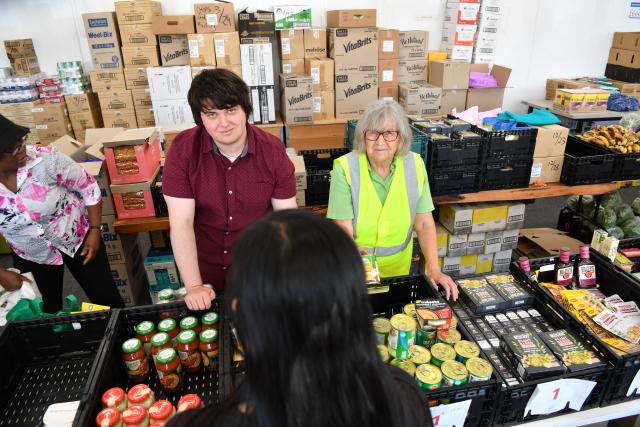
Hannah Hammoud
Across Australia queues for food relief continue to grow. The situation is no different in Braybrook at the Duke Street Community House.
The DSCH has been a source of support for locals in Braybrook for a number of years. But with rising demand and dwindling resources, the future of its food relief service is under a cloud.
DSCH manager Emma Price said currently the food relief program operates without funding.
“Demand is currently in excess of what we can provide,” she said.
“During COVID-19 our food relief program expanded to a point where we realised we couldn’t house it in our small, little neighbourhood house. We had the very generous support of Central West Shopping Centre who offered us the space two years ago, at no cost. Now we’re coming up to three years that we’ve been delivering the program in Braybrook
“In the last 12 months we have seen a massive increase in our weekly service, with a range of people connecting with our service, many who have never accessed food relief before. There are many people working and people who receive government benefits, but it’s not covering all their costs.”
Ms Price said as demand continues to climb, the future of the food relief program is becoming increasingly uncertain.
“Currently we fund it completely internally, we run at a loss – and it is a massive financial burden to our community house. We have lovely key partners and we previously had state government funding for the food relief program, but those funds ceased as of the end of last year,” she said.
A state government spokesperson said the DSCH receives funding through the state government’s Neighbourhood House Coordination Program. However Ms Price said the funding is used for the day to day operations of the organisation and its core services.
“DSCH receives minimal funding from the state government which does not cover the cost of the food relief program. We do not receive specific funding for the food relief program, and there is no room to cover the cost of the program within the funding we do receive,” Ms Price said.
“We recognise that the need for food relief in our community is so huge so we made the decision not to step out at the end of last year. It was an incredibly tough decision for an organisation our size to make, but an even tougher decision would be to leave 150 families without food to eat.”
The DSCH offers the food relief service with a postcode restriction, accessible to locals living in the 3020, 3019 and 3012 postcodes through a ‘market-style’ service.
“We are able to provide people with choice so that they’re not just getting a box, and it also helps reduce food waste as people can choose foods they like to eat and know how to cook with,” Ms Price said.
“At times food does run out, and at the moment we are able to meet the needs of everyone who comes in and nobody leaves empty handed. However, quite often people who might present to us don’t live in the area and so we make sure they don’t leave empty handed, but unfortunately they can’t come back.
“Long term it’s not a viable option for us to continue internally funding it, what that means is that we have to either reduce our service or ideally refer our families onto other local services, however most other services like us are also struggling to meet demand,” she said.
Maribyrnong council chief executive Celia Haddock said council acknowledges that people in the community are dealing with cost of living pressures, leading to higher demand for food services.
“While Maribyrnong council does provide funding to Duke Street Community House, along with Brimbank council, and other neighbourhood houses within the municipality, the state government is best placed to provide ongoing funding for this program,” she said.







